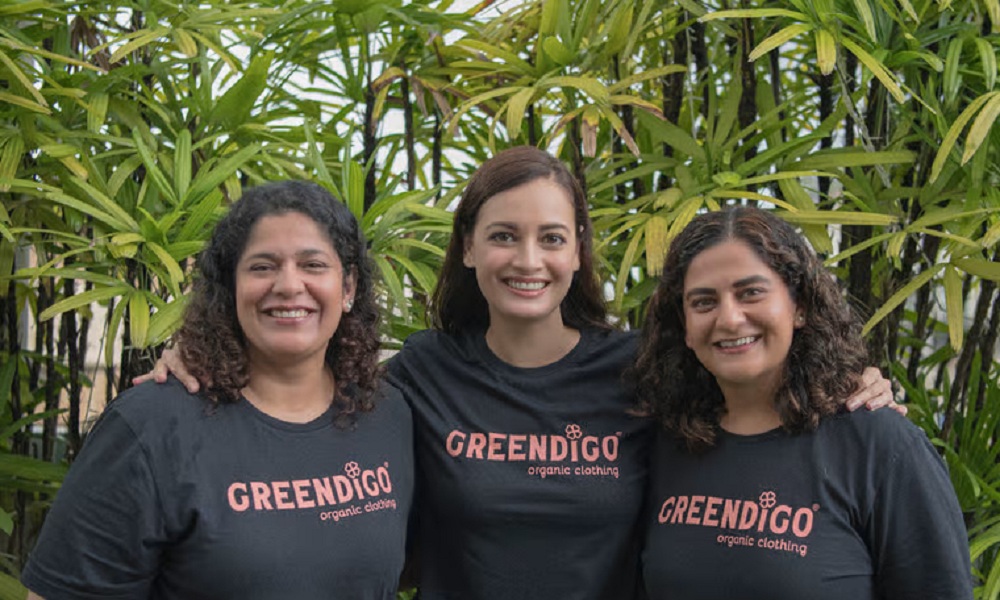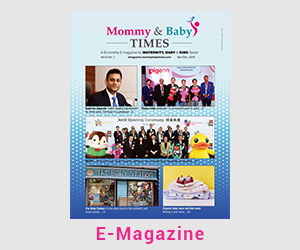Organic baby food creating a buzz amongst the urban Indian parents
August 31, 2018
The demographic taken of those born between the 1980s and the early 2000s are broadly termed as Millennials or Generation Y. India is a country that is identified as the youngest nation as people under the age of 35 occupy more than 60% of its total population. Being technologically savvy, well- informed and having an inherent wish to explore and analyze all the choices available to them- are some of the defining characteristics of the millennial generation. The term is not just applicable to define this certain age group, but also to underline their distinctive consumer behavior.

Organic baby food for sustained living
According to a research report by ASSOCHAM and EY, in the Organic food and beverages section, India has witnessed a market growth of Rs.4,000 crores in 2016-17 from Rs. 675 crores in 2009-10, with a growth rate of 25% annually. Due to a considerable increase in disposable incomes and a growing consciousness to inculcate a healthy lifestyle, people are inclining towards healthier alternatives, especially for children. There has been a surge of opting for Organic food as now many informed, urban folks consider going to the farmers’ market to get fresh fruits and veggies, instead of the local markets or supermarkets. In effect, eliminating the role of the middlemen, and encouraging Organic farming, these markets vouch for a good quality of the food as well as also ensuring to the farmers the right amount for their produce. The technique of Organic farming works without making the use of synthetic pesticides, GMOs (Genetically Modified Organisms), preservatives, and fertilizers.
Millennial Indian consumers have a plethora of choices for their kids as far as baby food is concerned, all thanks to the growing health consciousness that has spawned across the globe. Organic baby food is produced considering the maximum retaining of nutrition value and the least use of synthetic external inputs. India is the country with the largest number of Organic farmers globally which is really significant in this regard. This growing inclination and this evident enlightenment to opt for Organic baby food by these millennial parents would be cascaded into the coming generations too. A great many Indian parents wish to extend their health awareness to cherry-pick the food for their babies. It means that they would readily go for upmarket baby foods. There are numerous Indian brands such as 24 Mantra Organic, Pristine Organics, which are working in this domain of the organic baby food industry to bring authentic and first-rate organic baby food into the market.
Jaivik Bharat- the New India
This categorical shift to organic food by a lot of well-heeled parents is to attain maximum quality assurance and to inspire a sustained standard of lifestyle. According to ASSOCHAM, metropolitan cities have witnessed a 95% increase in demand in the last five years. The current market size for Organic food products is USD 533 million(Rs. 3,700 crores approx.), exhibiting 17%growth in 2015.
The Food Safety Standards and Authority of India (FSSAI) had started the initiative called the Food Safety and Standards (Organic Foods) Regulations in the year 2017 along with the tagline “Jaivik Bharat” as well as a unified logo for organic food products. Each organic food product that is certified under this logo would furnish complete and true information on the Organic status of the food to assure reliability before its consumption.

Organic farming in India vis a vis Globally
Organic farming is practiced with varying levels of success in 178 countries. However, the North American and European Union regions (as single markets) generate the bulk of the global sales. The global sales increased to USD 89.7 billion (Rs. 630,000 crores approx.) in 2016 from USD 7.9billion (Rs. 56,000 crores approx.) in 2000.
The organic agriculture area grew to 57.9 million ha (15%), whereas Organic producers grew to 2.7 million producers (12.8%) from 2015 to 2016. India houses the highest number of Organic producers globally with 835,000 Organic farmers. It also ranks ninth in terms of area under organic cultivation with 1.49 million ha. Therefore, it occupies a robust position in producing organic products, having already exported 1.35 million tonnes of certified Organic food products worth Rs. 1,937 crore in 2015-16.
ORGANIC FARMING (2016)
Organic agriculture land 2016
| Organic Farmland | = 57.9 m ha |
| Countries with Organic Farming | 178 |
| Europe | 13.5 m ha |
| North America | 3.1 m ha |
| Africa | 1.8 m ha |
| India | 1.49 m ha |
Top 3 countries of Producers (Organic Farmers)
| India | 8,35,000 |
| Uganda | 2,10,352 |
| Mexico | 2,10,000 |
| Globally | 27,00,000 |
Top 3 countries Market (EUR Billion)
| USA | 38.9 |
| Germany | 9.5 |
| France | 6.7 |
m ha: million hectare
Source: IFOAM and FiBL Survey








